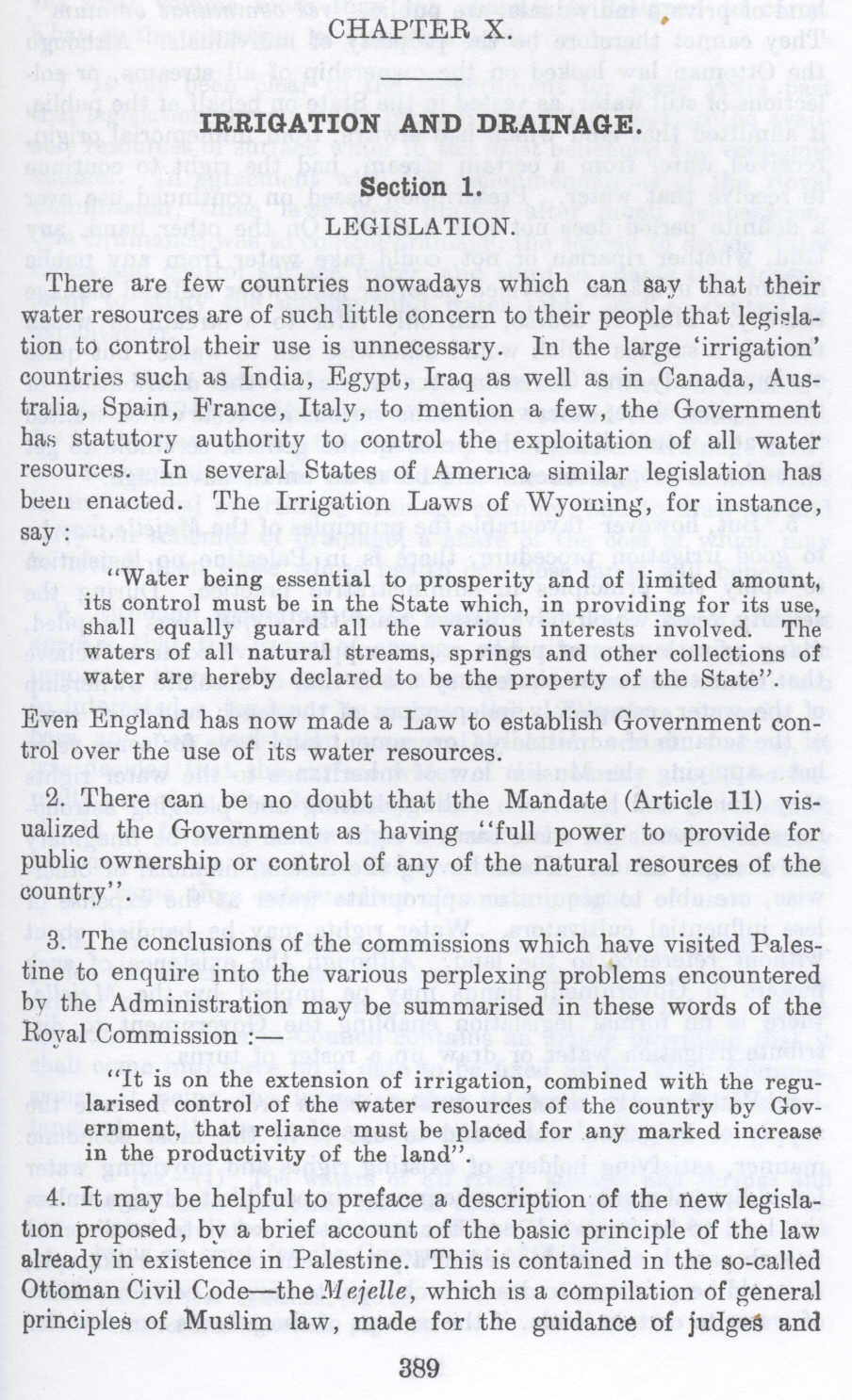| Prev | Next |  |
| Prev | Next |
| PalestineRemembered | About Us | Oral History | العربية | |
| Pictures | Zionist FAQs | Haavara | Maps | |
| Search |
| Camps |
| Districts |
| Acre |
| Baysan |
| Beersheba |
| Bethlehem |
| Gaza |
| Haifa |
| Hebron |
| Jaffa |
| Jericho |
| Jerusalem |
| Jinin |
| Nablus |
| Nazareth |
| Ramallah |
| al-Ramla |
| Safad |
| Tiberias |
| Tulkarm |
| Donate |
| Contact |
| Profile |
| Videos |
Irrigation, Drainage and Legislation in before 1948 (Nakba), British Mandate: A Survey of Palestine: Volume I - Page 389. Chapter X |
Disclaimer
The above documents, article, interviews, movies, podcasts, or stories reflects solely the research and opinions of its authors. PalestineRemembered.com makes its best effort to validate its contents.


Post Your Comment
*It should be NOTED that your email address won't be shared, and all communications between members will be routed via the website's mail server.
IRRIGATION AND DRAINAGE.
Section 1.
LEGISLATION.
There are few countries nowadays which can say that their water resources are of such little concern to their people that legislation to control their use is unnecessary. In the large 'irrigation' countries such as India, Egypt, Iraq as well as in Canada, Australia, Spain , Prance, Italy, to mention a few, the Government has statutory authority to control the exploitation of all water resources. In several States of America similar legislation has been enacted. The Irrigation Laws of Wyoming, for instance, say:
"Water being essential to prosperity and of limited amount, its control must be in the State which, in providing for its use, shall equally guard all the various interests involved. The waters of all natural streams, springs and other collections of water are hereby declared to be the property of the State".
Even England has now made a Law to establish Government control over the use of its water resources.
2. There can be no doubt that the Mandate (Article 11) visualized the Government as having "full power to provide for public ownership or control of any of the natural resources of the country".
3. The conclusions of the commissions which have visited Palestine to enquire into the various perplexing problems encountered by the Administration may be summarised in these words of the Royal Commission :-
"It is on the extension of irrigation, combined with the regularised control of the water resources of the country by Government, that reliance must be placed for any marked increase in the productivity of the land".
4. It may be helpful to preface a description of the new legalization proposed, by a brief account of the has ic principle of the law already in existence in Palestine. This is contained in the so-called Ottoman Civil Code-the Mejelle, which is a compilation of general principles of Muslim law, made for the guidance of judges and
Page 389